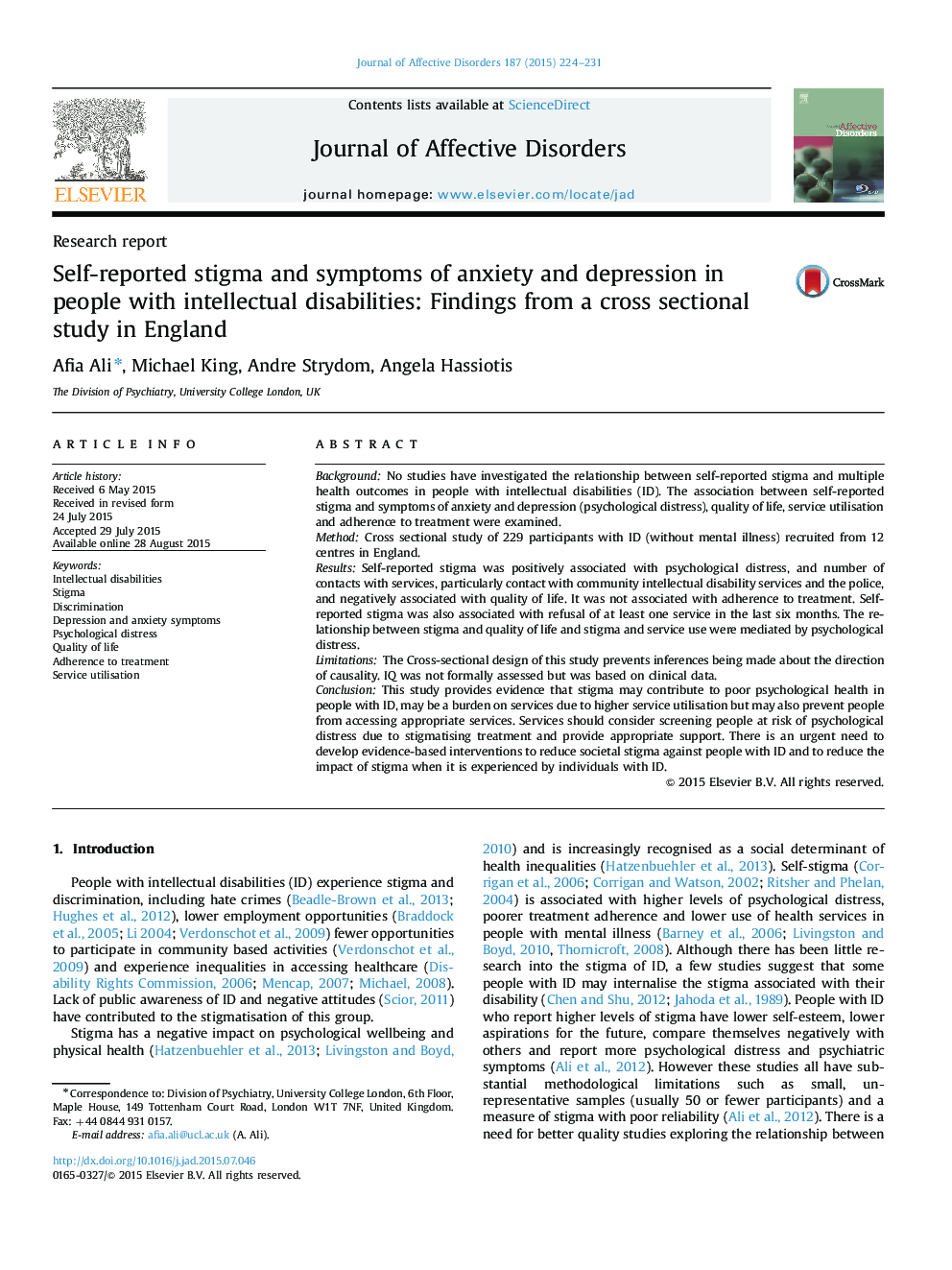| Article ID | Journal | Published Year | Pages | File Type |
|---|---|---|---|---|
| 6231003 | Journal of Affective Disorders | 2015 | 8 Pages |
â¢The association between self-reported stigma and health outcomes were investigated.â¢Self-reported stigma was strongly associated with psychological distress.â¢Self-reported stigma was negatively associated with quality of life.â¢Self-reported stigma was associated with more contacts with services.â¢The above relationships were mediated by psychological distress.
BackgroundNo studies have investigated the relationship between self-reported stigma and multiple health outcomes in people with intellectual disabilities (ID). The association between self-reported stigma and symptoms of anxiety and depression (psychological distress), quality of life, service utilisation and adherence to treatment were examined.MethodCross sectional study of 229 participants with ID (without mental illness) recruited from 12 centres in England.ResultsSelf-reported stigma was positively associated with psychological distress, and number of contacts with services, particularly contact with community intellectual disability services and the police, and negatively associated with quality of life. It was not associated with adherence to treatment. Self-reported stigma was also associated with refusal of at least one service in the last six months. The relationship between stigma and quality of life and stigma and service use were mediated by psychological distress.LimitationsThe Cross-sectional design of this study prevents inferences being made about the direction of causality. IQ was not formally assessed but was based on clinical data.ConclusionThis study provides evidence that stigma may contribute to poor psychological health in people with ID, may be a burden on services due to higher service utilisation but may also prevent people from accessing appropriate services. Services should consider screening people at risk of psychological distress due to stigmatising treatment and provide appropriate support. There is an urgent need to develop evidence-based interventions to reduce societal stigma against people with ID and to reduce the impact of stigma when it is experienced by individuals with ID.
